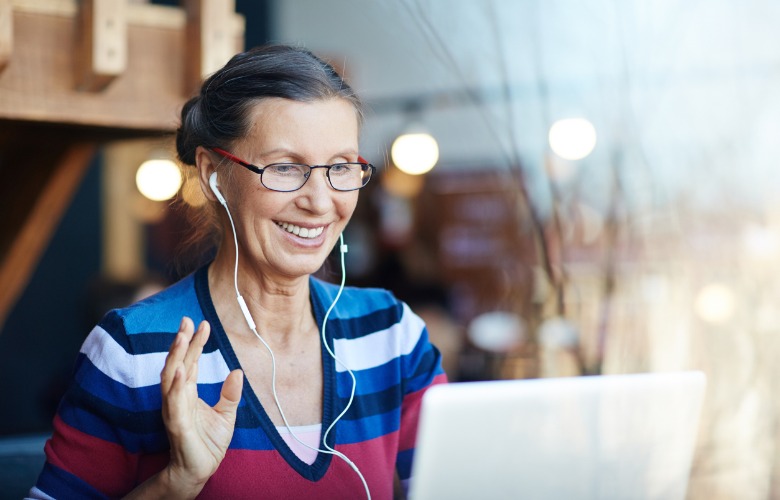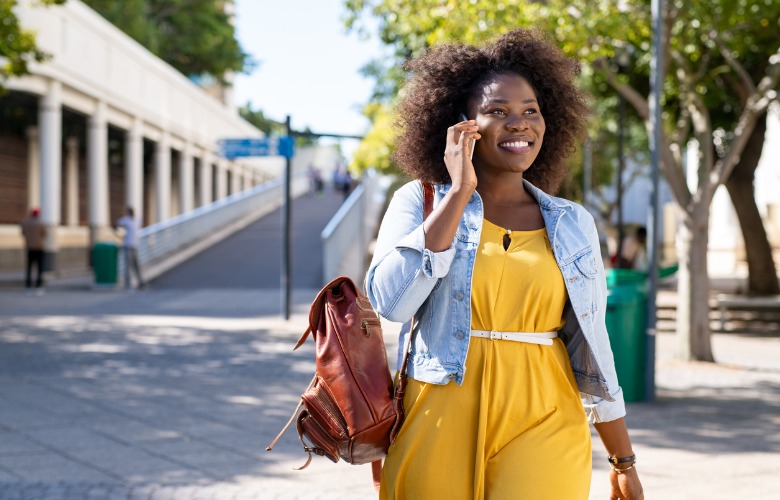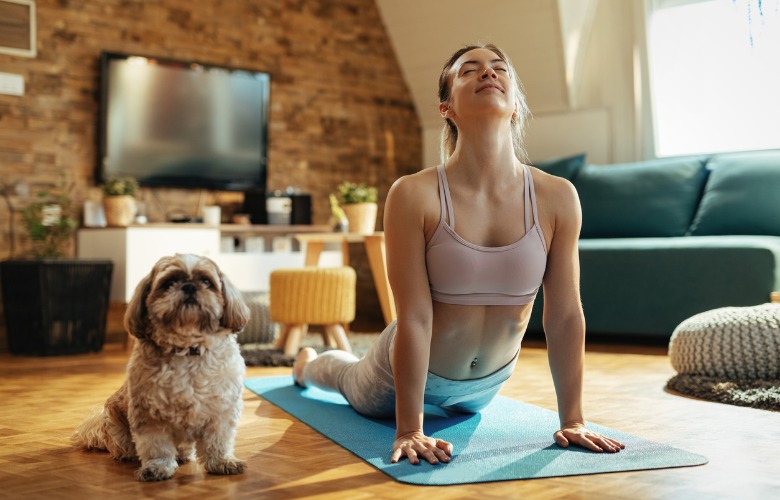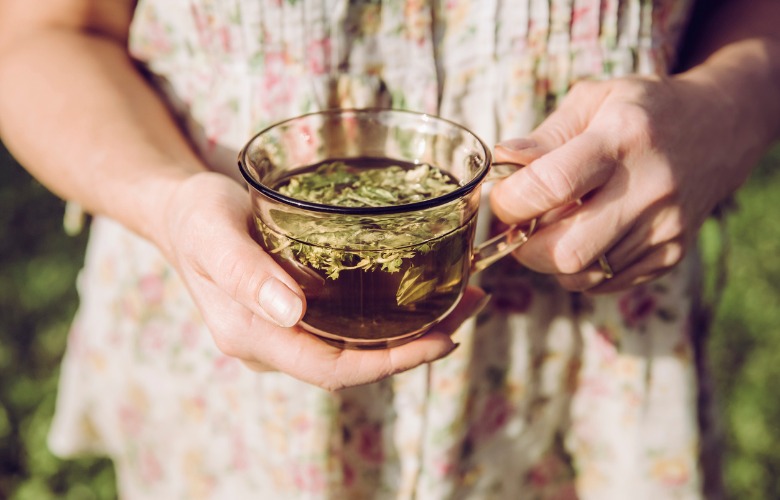Mood and Social Isolation
Posted by Jemile Nesimi Hobson, B.A. on Oct 12, 2024
Currently much of the country, and the world for that matter, are under stay at home orders or are social distancing in an abundance of caution due to the coronavirus (COVID-19) pandemic that has spread globally. Many people have been socially isolating in the United States for the last 4 weeks or more. While this can help reduce the spread of the virus and flatten the curve, giving our healthcare system time to deal with the increases in those that will need emergency medical care, it can have a profound effect on our well-being.
Some people are lucky enough to be at home with their family members or friends, although many people that are at home with other people may also begin to feel socially isolated as well. Mood changes are normal during uncertain times such as these, trauma from seeing people around the world suffer or die from COVID-19, loss of employment, or having to school children as well as work from home can all add to the stress and anxiety. Not being able to do what you normally do and drastic changes in routines of every kind can affect mood negatively. There are some ways to support your mental health and lessen the impact of social isolation.
How does social isolation affect mood?
Social isolation is a unique experience and affects mood in a variety of ways. First, in a traumatic and sudden climate as the unprecedented event of a global pandemic that swiftly changed the lifestyles of so many at once, there is a wide range of social, economic, and public health impacts at play. The first emotion that many will succumb to is loneliness. Also, stress, anxiety, fear, cynicism, denial, grief, panic and more can all impact mood and your cognitive and mental health. People's lives have been completely turned upside down in only a few weeks and it is completely normal to experience mood changes while adapting to new routines and dealing with loss and grief.
Symptoms of depression due to social isolation include:
- Loneliness
- Sadness
- Difficulty sleeping
- Sleeping too much
- Hazy memory
- Brain fog
- Difficulty concentrating
- Loss of interest in activities
- Decreased motivation
- Feelings of overwhelm
- Overeating
- Undereating
- Hopelessness
- Perceived lack of support
- Social disconnectedness
How to adapt to change while supporting your mental health

Reach out
You may not be able to socialize in person - but there are still many ways to stay in touch with friends and family. There are many ways to adapt and respond to the stress of social isolation and the sudden change of routine while dealing with the effects and traumas of a pandemic.
- Video sessions with friends and family would be top of the list. Reaching out for virtual coffee or happy hour, setting up a virtual game night, or just catch up.
- Try online therapy. It is as effective as in-person therapy and many insurances cover it. Therapists must be licensed in the state you live in and they must still follow all HIPPA compliancy and confidentiality laws.
- Working from home? Probably, you are already tired of the many Zoom meetings you have attended. However, you may feel less isolated if you join a local networking group to bounce ideas off of others, get to know people in your community professionally or just reach out to peers in your industry to brainstorm ways to cope and lend support to one another.
- Have a good old-fashioned chat on the phone with someone. Catch up with old friends and check in with family members, especially those most vulnerable.
Go outside
Making sure you spend time outdoors is crucial during social isolation and it can be therapeutic and grounding as well. Being closer to nature is also an excellent way to get more physical activity, making it good for your heart and a boost to your immune system. It also fosters social connections when participating in group settings. Hiking, or even resting in the forest or park, has also been found to lower cortisol and blood pressure levels, making it an excellent stress-buster. Even sleep improves in those who spend regular time in nature. Exercise can help boost your immune system, support circulation, and improve mood.
- Get some fresh air. Open a window, sit on your balcony or porch if you have one, ditto for your backyard. Take frequent breaks throughout the day to get some fresh air and sunlight. Sunlight is important as it plays a major role in vitamin D production and activates key immune cells. This will help you feel less “trapped” and you may even see a neighbor to wave to.
- Take a walk or run – while socially distancing of course. Many National, local parks, and hiking trails have been closed to avoid people gathering. However, you can still find patches of green or a sidewalk to take a brisk walk. Right now the CDC is recommending masks for all public outings and if you are feeling sick you should stay home. However, if alone or with someone you are social isolating with, it is a great idea to take a walk and get some exercise and fresh air. If running, it is recommended you do not run in groups and stay at least 6 feet apart from anyone you may pass.
- Garden – Whether you have a backyard, a balcony or your apartment, there are many ways to take up gardening. You can grow plants, herbs, and vegetables in pots, vertical gardens, or a small patch in your yard. Many people are starting coronavirus or crisis gardens as grocery shopping becomes harder and more dangerous to do, shortages are being experienced and people are picking up hobbies with their newfound time. Also, gardening can be very calming and productive giving you a sense of satisfaction and some delicious food to eat or beautiful plants or flowers to keep around you.
Self-Care
Taking care of yourself is important and keeping a routine will help you feel better. While stress eating and spending more time lounging around is completely normal and healthy to do right now - you should also balance this with regular exercise, a healthy diet and taking time to unwind and focus on your personal needs. Especially if you are taking care of children or the older family members - you will need to be the best you to keep them cared for too.
- Meditate and practice yoga – Many instructors have started free or low-cost virtual classes for guided meditation or yoga classes. Meditation can help reduce stress and anxiety, support immune health and help you be in the moment no matter what else is happening around you. Yoga can decrease anxiety, increase GABA levels and is a great way to exercise.
- Be easy on yourself – We are all in this together, literally the entire world. Remember that while you can not be with your community, they are still there and probably feeling the same as you do. Be compassionate with yourself and others during this time of crisis. In addition, don’t focus on being productive – it may be difficult to work as you usually do or spend time doing the things you always wanted to do if you had time. This time is different than other times, there is a lot of trauma and stress that you may be feeling and it is OK to just be.
- Reduce your screen time – It is a great idea to spend some downtime binging streaming shows or movies at this time and may help you feel connected to others, give you a much-needed laugh or help you just escape everything for a bit. However, if you are feeling overwhelmed, reduce the amount of time you spend on social media or watching news stories where you may repeatedly hear about the pandemic and feel stressed or upset by it.
Boost your mood with herbs
The following herbs can help balance the mind, boost our mood, and calm ourselves, in moments of stress and anxiousness:
- L-theanine or Green Tea - Helps boost GABA levels in your brain - which helps reduce anxiety.
- St. John’s Wort - may elevate dopamine and serotonin levels. Known as Hypericum perforatum, St. John’s wort has been used for hundreds of years for mood support.
- California Poppy - is a mild relaxant, aids with sleep, and has pain-relieving properties.
- Chamomile, from the Matricaria recutita plant, has been found to help with depression and anxiety.
- Saffron - balances brain chemistry and helps with low mood and anxiousness.
- Lavender has traditionally used to reduce anxiety, promote relaxation and help with sleep. Used in an essential oil it can be added to a diffuser, a drop or two on your pillowcase, or grow your own plant to have around the house.
- Ginseng has been used in traditional Chinese medicine for thousands of years to reduce stress, increase energy and improve mental clarity.
- Lemon balm helps to emotionally cleanse you and rejuvenate you.
- Rose can help to calm you and is best taken as rosehip tea.
- Holy basil, also known as tulsi, supports mood and brain health. It improves concentration, clears brain fog, and has a calming effect. Tulsi also has adaptogen properties that can help you cope with and adapt to stress.














